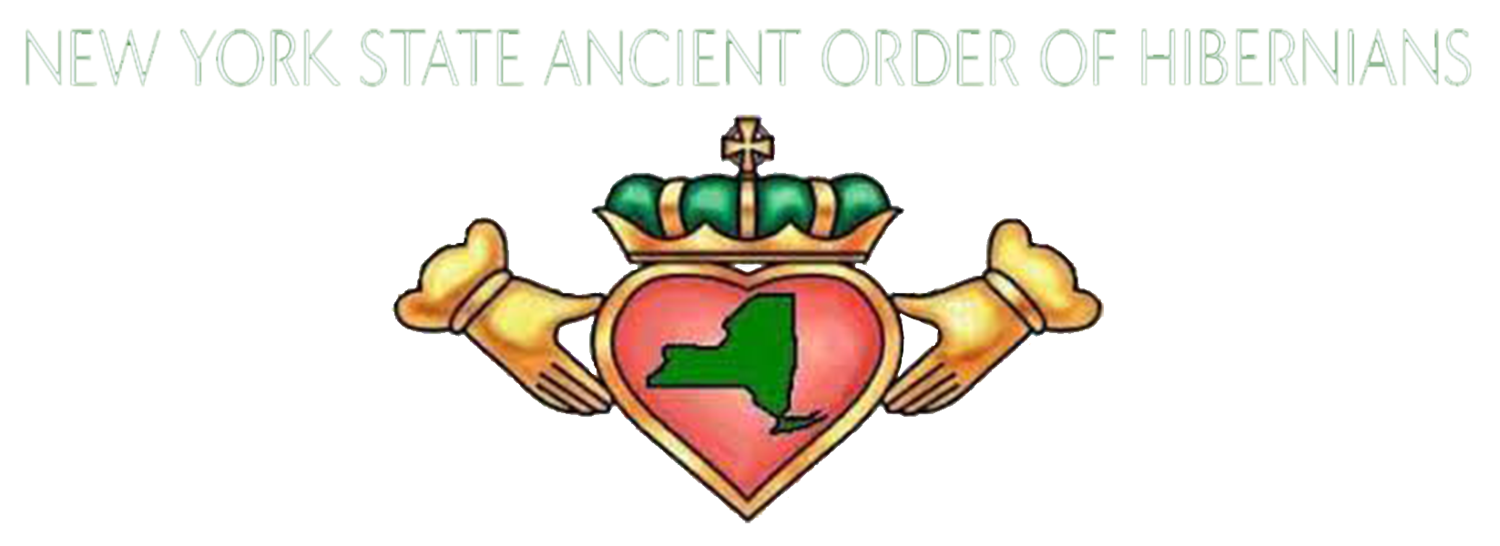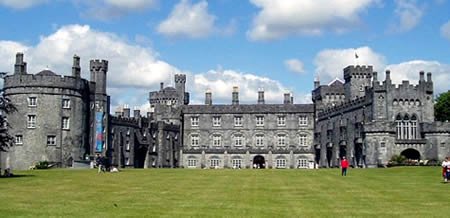The Statutes of Kilkenny
by Mike McCormack,
NY AOH Historian Emeritus and NYS AOH District 6 History Councilor.
Despite the Celtic antiquity of the island of England, many invasions changed her over the years. There came Romans, Angles, Saxons, Vikings and Normans and the latter of these spread their land-lust to Ireland in 1169. Without a central government, the local Irish Chieftains allied with the newcomers, some hospitably and some by force. Eventually, many Normans began to adopt the inviting lifestyle of the Irish much to the chagrin of the English Crown which in later years was ruled by the Plantagenet kings: Henry III, and Edwards I, II, and III. By that time, Ireland was considered a conquest and the Irish as enemies. The earlier Norman settlers, now considered the ‘Anglo-Irish’, were becoming an issue. The Exploring Celtic Civilizations (An Online Celtic Studies Coursebook at https://exploringcelticciv.web.unc.edu/) said it best when noted: ‘After several generations in Ireland, the “Old English” settlers who were sent to conquer and hold it on behalf of the English Crown began to be assimilated into Gaelic society.’ With that their continued loyalty to the Crown was often in question. Thus came the Statutes of Kilkenny – a list of 35 Laws which were the first English attempt at Apartheid.
Not only are those embarrassing laws forgotten, but several sites disagree on the actual date of their passing. For example the Encyclopedia Brittanica dates the Statutes of Kilkenny at 1366 as does the Oxford Reference Website. However, University College Cork notes that: ‘....in the Fortieth Year of King Edward III was enacted in a parliament held in Kilkenny in A.D. 1367, the series of Statutes of Kilkenny.’ The Library of Ireland confirms that date and likewise UNC’s ‘Exploring Celtic Civilizations’ online course notes: ‘The Statutes of Kilkenny (1367) contained 35 acts intended to reinforce the division between the native Irish and the descendants of the original English colonists.’ Looking for the real date, the actual Statutes can be read online: ‘In consequence of the grievous complaints of the commons of his said land, called to his parliament held at Kilkenny, the Thursday next after the day of Cinders Ash Wednesday in the fortieth year of his reign, before his well-beloved son, Lionel Duke of Clarence, his lieutenant in his parts of Ireland, to the honor of God and His glorious Mother, and of holy Church, and for the good government of the said land, and quiet of the people, and for the better observation of the laws, and punishment of evil doers there, are ordained and established by our said lord the king, and his said lieutenant, and our lord the king's counsel there, with the assent of the archbishops, bishops, abbots and priors, the earls, barons, and others the commons of the said land, at the said parliament there being and assembled, the ordinances and articles under written, to be held and kept perpetually upon the pains contained therein.’
The inconsistencies by otherwise reliable British sources are not readily explainable, but the wording in the Statutes themselves, notes that they were enacted in a parliament in Kilkenny on the day after Ash Wednesday, in the 40th year of the reign of King Edward III. The reign of Edward III began 25 January 1367 and therefore, the 40th year of his reign is not 1366 but 1367. In researching the calendar for 1367, we found that the true date of the Statutes of Kilkenny is therefore 5 March 1367. Although the date of the Statutes may not be clear to some, the intent of the Statutes is! They were meant to give special status to the Anglo-Norman subjects of the Crown and distinguish them from what was considered the inferior native Irish. Despite that, the Anglophile website, ResearchGate.net explained that: ‘Although racially motivated, at least in part, the Statute should not be seen as attempting to engineer a form of apartheid in Anglo-Ireland. Rather it was representative of a broader governing culture and compares closely with legislation enforced not only in the other Plantagenet dominions but also in England itself.’ It remains easy, based on simple reading, that this is not accurate.
It was clearly blatant discrimination and although it didn’t outlaw Irish culture and traditions from the ‘common Irish’ (an impossible task to be sure), it did forbid their practice by Crown subjects to such an extent that those who violated the mandates were held guilty of treason, fined and/or imprisoned. Fairly difficult to enforce, the Statutes nevertheless paved the way for the Penal Laws of 1695 which explicitly and overtly stripped the Catholic Irish of their rights, government, and land. Parliament finally saw fit to pass the Statute Law Revision Act of 1983 which eliminated some of the remaining statutes, now only applicable, in the occupied counties in the north of Ireland.


